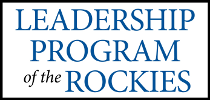“Despite the best efforts of teachers, schools, and parents, there is little doubt that online and hybrid learning models are creating gaps for students across our state.”
— LPR alum Erin Kane, Founder and Executive Director of American Academy.

The Denver Post has published a poignant article by LPR alum Erin Kane (class of 2016) on the effects of COVID-19-related school closures on public school student learning. Here are excerpts of Erin’s Guest Commentary in The Denver Post:
COVID-19 set Colorado students back. Tests will tell us how much.
State testing of Colorado’s public school students may be on the chopping block again this year. For the sake of our children and their future, we cannot allow this to happen. The COVID-19 pandemic has upended our lives and our economy, and the impact on Colorado’s schoolchildren has been (and continues to be) tremendous. Despite the best efforts of teachers, schools, and parents, there is little doubt that online and hybrid learning models are creating gaps for students across our state. Worse, school closures have a disproportionate impact on children in poverty, many of whom are unable to access online learning, likely exacerbating existing achievement gaps. Researchers at McKinsey & Company recently created a statistical model that estimates U.S. students will lose an average of 7 months of learning due to the pandemic, with low-income students expected to lose over 12 months. According to the research, these losses could translate to a lifetime earnings reduction of $61,000 to $81,000. As alarming as these numbers are, the model assumes that in-person learning resume[d] in January…How bad will the actual learning losses be in Colorado? We need to know. State testing in the spring will be challenging, to be sure. Many argue that schools cannot afford to lose even more instruction time and that the strain put on already overtaxed schools and teachers is too much. There are also concerns about test results being used to judge the performance of teachers and schools when the reality is that no one was fully prepared for the sudden shifts to online learning or teaching in conditions that we never could have imagined a year ago. Finally, with the uncertainty of the pandemic, it is unclear how we would test potential remote learners. As an education leader, I share all of these concerns — even in a normal year, state testing is not a process any of us look forward to. Like many, I worry that the current assessment is overly complex and takes away too much instruction time. We need to have discussions about assessment in Colorado, and when we do, I will be first in line to participate.

“How bad will the actual learning losses be in Colorado? We need to know…” – Erin Kane in her Denver Post Guest Commentary COVID-19 set Colorado students back. Tests will tell us how much. Photo by Hyoung Chang, courtesy of The Denver Post.
Read Erin Kane’s complete Denver Post op-ed.
